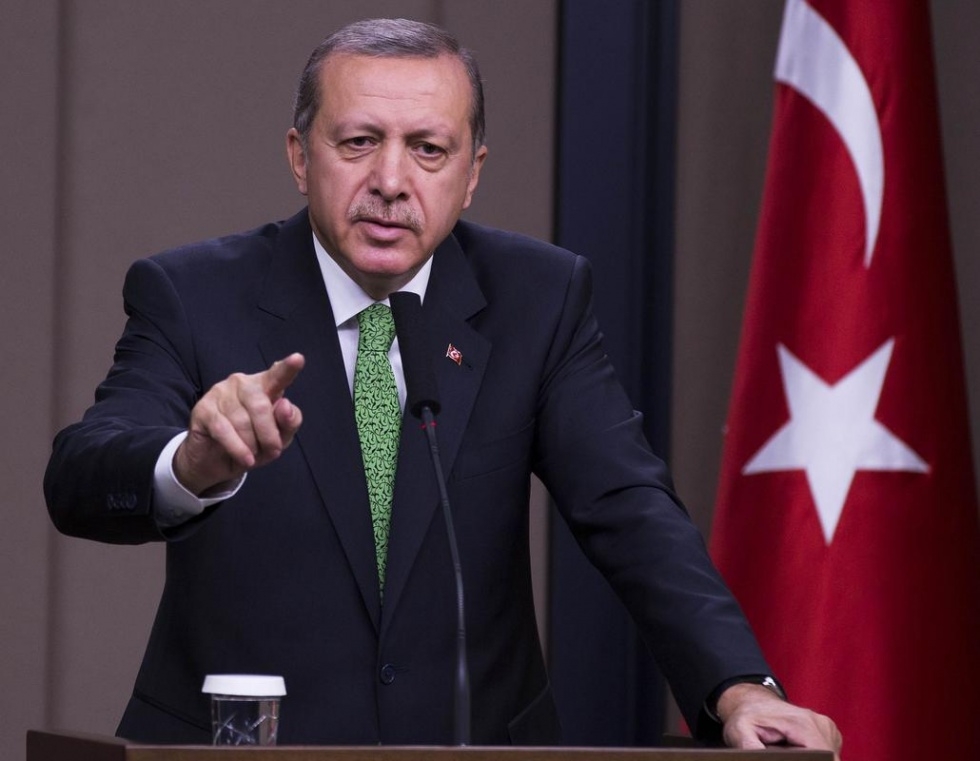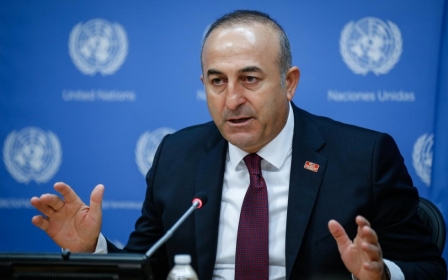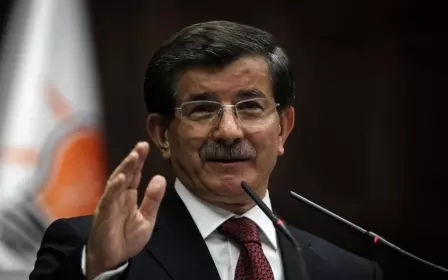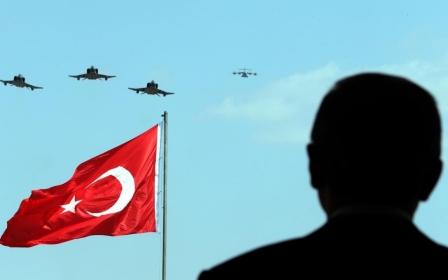Turkey frustrated with US policy on Syria

Turkish President Recep Tayyip Erdogan on Wednesday expressed frustration that the US and its allies were not responding to conditions set for his country to play a greater role in the coalition against militants in Syria.
His complaint came as a US special presidential envoy, John Allen, visited Ankara for previously unannounced talks with Turkish officials.
Turkey wants the United States to help train and equip a large contingent of rebel Free Syrian Army (FSA) forces to fight against forces allied to President Bashar al-Assad and also wants to creation of a long security zone inside Syria along the Turkish border.
But speaking to reporters at Ankara airport before heading on a trip to Africa, Erdogan said that the coalition "had not made the steps we asked them for".
Turkey has so far refused to play a full role in the US-led coalition against Islamic State (IS, also known as ISIL) militants who have captured swathes of territory in Iraq and Syria right up to the Turkish border.
Erdogan said that the "parties have not taken any decisive steps towards the train-and-equip plan" for FSA fighters.
"From the no-fly zone to the safety zone, and training and equipping, all these steps have to be taken now.
"But the coalition forces haven't taken the steps we asked them for or suggested to them."
He signalled Turkey would not change its position unless its conditions were fulfilled. "Of course Turkey will maintain its stance until this process has been completed."
Turkey has repeatedly called for the ousting of Assad as the sole way to resolve the Syrian crisis permanently.
It has grown increasingly concerned in recent months that the US-led coalition strikes against IS could end up strengthening Assad's rule.
Turkey is pressing for a no-fly zone and a security zone to be imposed inside Syria along its 911 kilometre (566 mile) border with the country to ensure its security.
But Turkey has been allowing a contingent of Iraqi peshmerga Kurdish fighters to transit Turkish soil to fight IS militants for the Syrian border town of Kobane.
'2-3 million more refugees' if Aleppo falls
Turkey also fears another two to three million Syrian refugees could cross its borders if the region of Syria's second city of Aleppo is overrun either by IS or Assad forces, Foreign Minister Mevlut Cavusoglu said Tuesday.
Turkey is already hosting at least 1.5 million refugees displaced by the Syrian conflict and has repeatedly warned that its capacities are being strained by the numbers.
Cavusoglu reiterated that supporting the FSA was the only option for the international community against what Ankara sees as the twin threat of IS and Assad.
"The main force fighting both ISIS and the Syrian regime today is the Free Syrian Army," he said.
"But it has failed to achieve the desired outcome because it is fighting against both groups," he told reporters in Ankara.
Cavusoglu said there was little difference between IS militants and pro-Assad forces.
"Both of them are killing people brutally and don't refrain from using any kinds of weapons at their disposal. Both force people to flee their land."
He added: "An advance on Aleppo would mean an influx of two to three million people to the Turkish border."
He said a weakening of the moderate opposition to Assad and the FSA would "result in the advance of the unstoppable ISIS as well as the regime".
"And this will make Syria even more unstable. Therefore, the advance of both of them should be halted."
'Unholy alliance' between IS and Assad
Meanwhile, a senior aide to Tayyip Erdogan said Tuesday that there was an "unholy alliance" between IS and Assad in the battle for Aleppo that had to be broken by the FSA.
"If Aleppo is allowed to fall, it would be the loss of any hope for the future of humanity in Syria," Ibrahim Kalin wrote in the Daily Sabah newspaper.
In recent months, Assad's forces have advanced around the outskirts of the eastern portion of Aleppo that is under rebel control, threatening to encircle it completely.
Rebel-held areas of Aleppo are under the control of multiple groups, including fighters affiliated with the FSA.
A United Nations General Assembly committee, responsible for humanitarian issues, adopted a draft resolution on Tuesday condemning the Syrian government's violations of international law and continued attacks on civilian populated areas.
The non-binding resolution says grave international humanitarian law violations were committed against civilians since the beginning of peaceful protests in 2011.
These include the use of barrel and vacuum bombs, terror tactics, chemical weapons and heavy artillery against civilians and civilian infrastructure.
The resolution also underlined the need for allegations -- contained in a set of documents presented earlier in 2014 -- regarding the torture and execution of persons incarcerated by the Syrian authorities to be made available for future accountability efforts.
In January, a defected Syrian military photographer, codenamed Caesar, leaked more than 55,000 pictures of approximately 11,000 people systematically tortured to death by the Syrian regime.
The photos were published as a joint exclusive by the Anadolu Agency, CNN and the Guardian.
The resolution will require the approval of the General Assembly in December.
New MEE newsletter: Jerusalem Dispatch
Sign up to get the latest insights and analysis on Israel-Palestine, alongside Turkey Unpacked and other MEE newsletters
Middle East Eye delivers independent and unrivalled coverage and analysis of the Middle East, North Africa and beyond. To learn more about republishing this content and the associated fees, please fill out this form. More about MEE can be found here.




